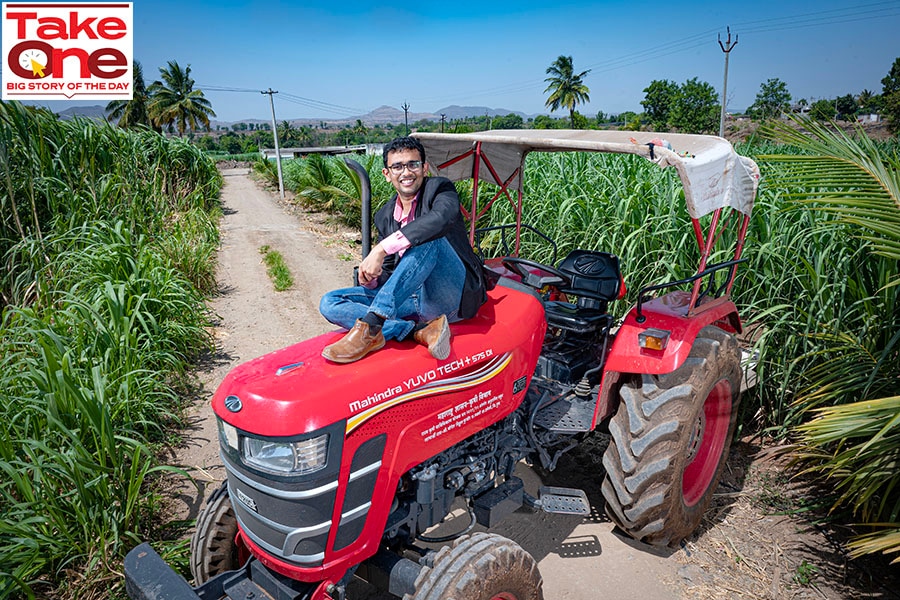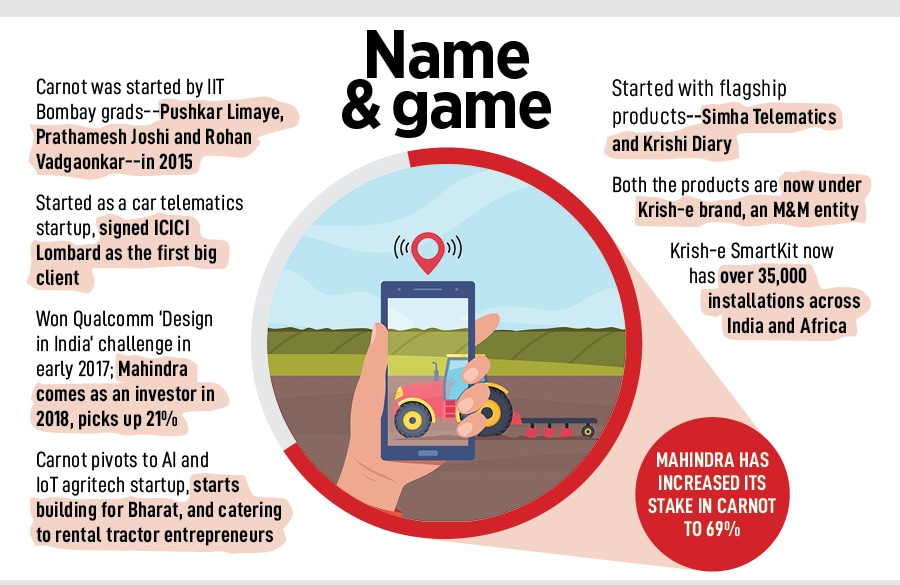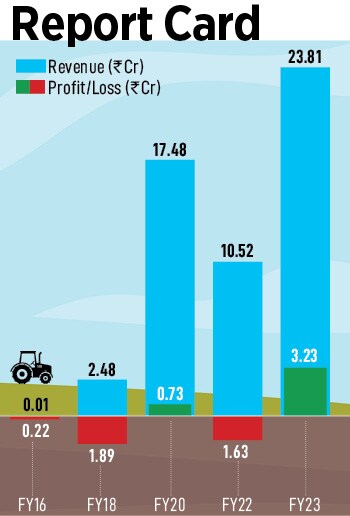
Car, Samosa, Tractor: Carnot & its ride with Mahindra
How a mechanical engineer and his IIT-Bombay friends used AI and IoT to make tractors smart, profitable, and ended up driving M&M's farming vertical
 Pushkar Limaye, Co-Founder and CTO, Carnot Image: Swapnil Sakhare for Forbes India
Pushkar Limaye, Co-Founder and CTO, Carnot Image: Swapnil Sakhare for Forbes India
May 2015, Mumbai. It started with a passionate, resounding and clarion call: Kar lete hain, kood jaate hain (let’s do it, let’s take the plunge). After working in a well-funded startup for over six months, three young IIT-Bombay grads realised they were misfits. And the reasons were unconventional. “We saw how a startup must not be run,” recalls Pushkar Limaye, who hails from a family of chartered accountants in Mumbai, spent the first 10 years of his life in a 150 square feet house shared by eight inhabitants, and completed his higher secondary education from a Marathi-medium school. “I wanted to continue with my family tradition of CA, but my father advised me against it,” he smiles. His friends were preparing for IIT, he too did, and was pleasantly surprised with the ease with which he cleared. “There was no pressure. I joined IIT-Bombay in 2010,” he adds.
On the first day of IIT, the young undergrad realised the meaning of ‘pressure’. “Everybody was talking and introducing themselves in English,” recalls Limaye. “I was a misfit. I avoided talking.” Over the next few weeks, Limaye started learning the language, but there was one big and instant lesson: Technology cut across communication barriers. “I mean, build circuits, write code…for an introvert like me, technology was a safe refuge,” he underlines. “I loved it.”
Over the next three years, Limaye found another love in the racing team of IIT-Bombay. He spearheaded the development of an all-terrain vehicle, took part in national competition, and topped it. The next target was foreign turf in the UK. And here came the next big learning. “There was a big disconnect in the theoretical world of engineering and the practical world,” he recalls.

Back in Mumbai in 2015, there was a growing disconnect. Limaye and his friends--Prathamesh Joshi and Rohan Vadgaonkar—decided to quit their jobs and turn entrepreneurs. The first idea was to build EVs (electric vehicles). The plan of making debut in a capital-intensive industry--which meant raising loads of money—was nixed. Reason was the poor experience which came from a stint as an employee at a startup. The big VCs were there, the tech venture had money, but they didn’t know technology. “They could not even fix a basic thing in tech and were talking about opening shops in Germany and Singapore,” he recalls. “We never wanted to get into such a business.” All friends listened to their hearts and decided to start a hardware venture of car telematics. “After all, we built cars (prototypes) at IIT, came among the top 20 in global competition and we know telematics,” argued Limaye. “We were made for the hardware business.”











